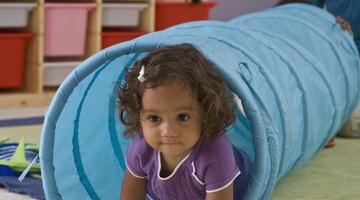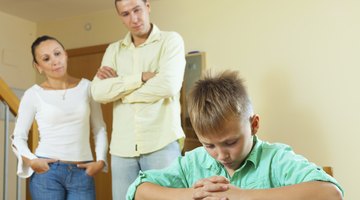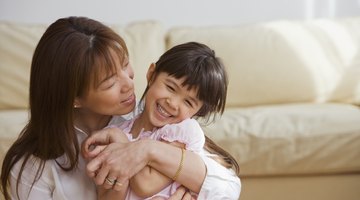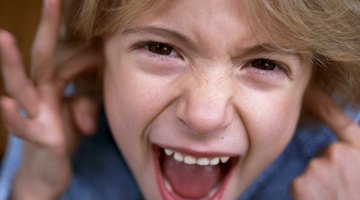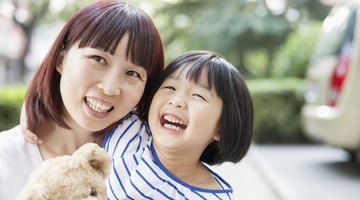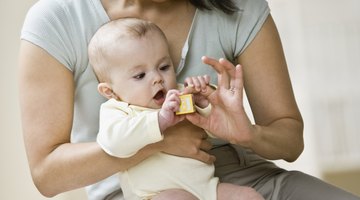The Effects of Isolation on a Child's Social Development
Isolation is severely detrimental to a child's social development. In the 1940's, René Spitz, a researcher and Austrian-American psychoanalyst, used child observation to determine just how detrimental a lack of important social interaction is to children. Harry Harlow conducted a study using monkeys that furthered Spitz's studies and explored the devastating consequences of isolation. The results of these studies are clear: being around loving, caring caregivers is essential for the proper social development of a child.
Less Playful
Children who are isolated during the early years of their lives are less playful than those who are socialized. Spitz analyzed two groups of children from birth to age 7 and found that those who were raised in an orphanage with little human contact were much less playful at age 1 than those who were raised in prison but saw their mothers frequently. This study demonstrates the catastrophic effect of social isolation at an early age.
Maternal Deprivation Syndrome

How Education Affects Early Childhood Development
Learn More
Children who were deprived of social interaction as babies often suffer maternal deprivation syndrome, which manifests itself in the form of failure to thrive. They do not meet developmental milestones on time, such as being able to speak a few basic words by 12 months, or speak 10 words at 18 months. They also are less responsive to the environment and relationships because their relationship with their mother or caregiver is neglectful and they are accustomed to isolation.
Disturbance
Children who are isolated as infants often develop disturbing behavior and have trouble connecting with their peers. Harlow's study on infant primates demonstrated that monkeys who spent months in isolation from other monkeys remained physically healthy, but developed disturbed social behavior. They huddled in the corners of their cages and rocked back and forth, comparable to the behavior of some autistic children. Harlow proved social development has a critical development period in monkeys, as well as humans.
Slow Language Development
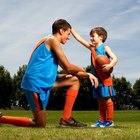
Factors Affecting Early Childhood Development
Learn More
Children raised in isolation or settings where human interaction is limited have slowed language development. In Spitz's study, only a few of the children who were raised in the orphanage could manage a few words by their second or third year of age. Their sensory and social deprivation caused them to be severely delayed in their language acquisition, putting them at risk for being permanently socially disabled.
Related Articles
- Maternal Deprivation Reassessed; Michael Rutter


